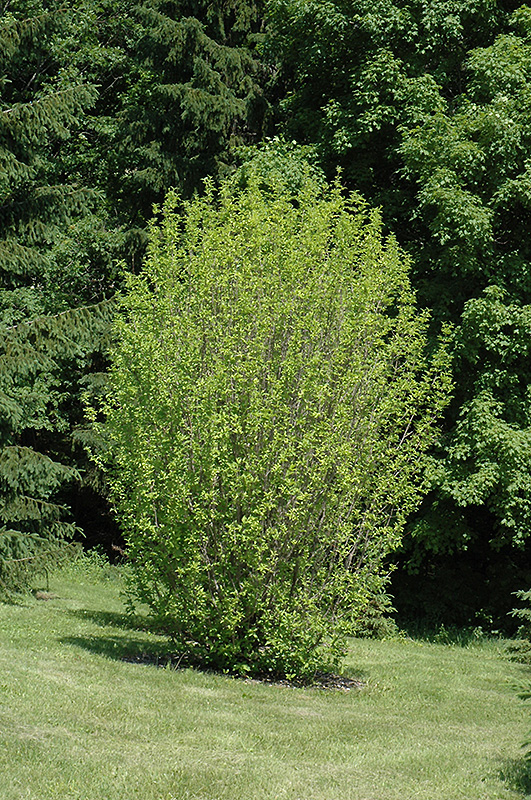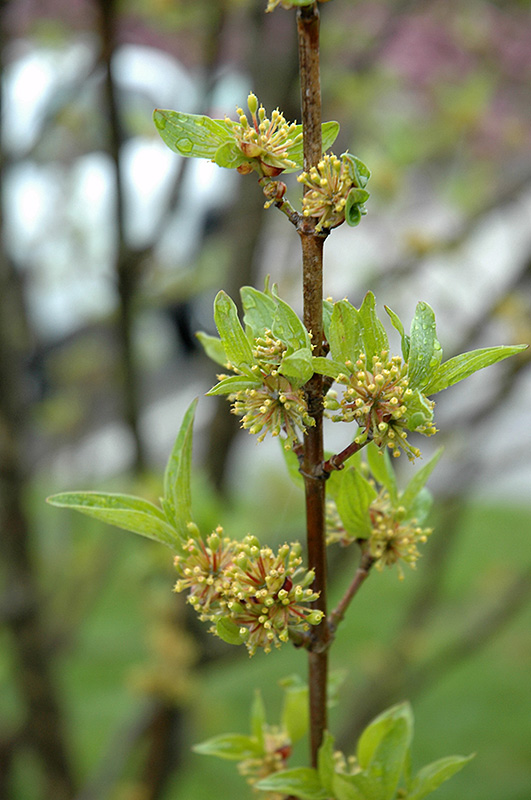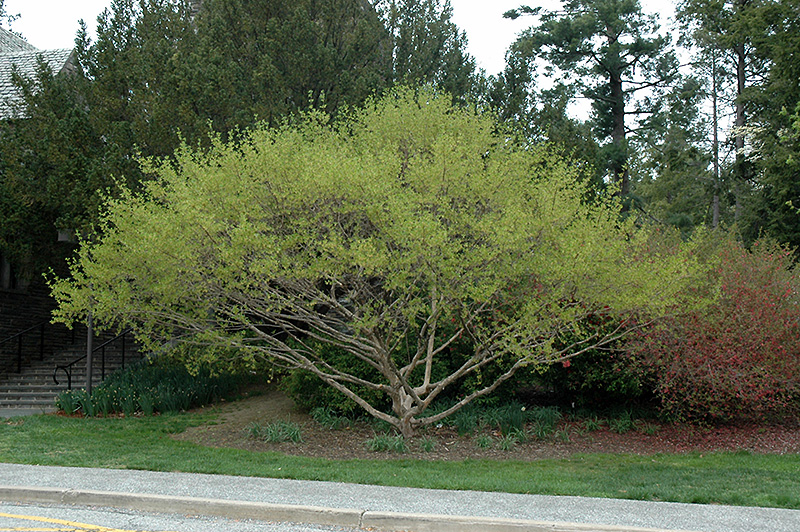Dogwood Tree, (Cornelian Cherry) Golden Glory Cornus mas 'Golden Glory' Height: 22 feet Spread: 17 feet
Sunlight:
Hardiness Zone: 4b Description: A beautiful small specimen tree for general landscape use; covered in bright yellow flowers in very early spring before the leaves and bright red berries in summer, compact habit of growth. Ornamental Features Dogwood Tree, (Cornelian Cherry) Golden Glory has clusters of yellow flowers along the branches from late winter to early spring before the leaves. It has dark green deciduous foliage. The pointy leaves do not develop any appreciable fall color. It produces red berries from early to mid summer. The fruit can be messy if allowed to drop on the lawn or walkways, and may require occasional clean-up. The peeling brown bark adds an interesting dimension to the landscape. Landscape Attributes Dogwood Tree, (Cornelian Cherry) Golden Glory is a deciduous tree with a shapely oval form. Its average texture blends into the landscape, but can be balanced by one or two finer or coarser trees or shrubs for an effective composition. This is a relatively low maintenance tree, and should only be pruned after flowering to avoid removing any of the current season's flowers. It is a good choice for attracting birds and bees to your yard, but is not particularly attractive to deer who tend to leave it alone in favor of tastier treats. It has no significant negative characteristics. Dogwood Tree, (Cornelian Cherry) Golden Glory is recommended for the following landscape applications; Planting & Growing Dogwood Tree, (Cornelian Cherry) Golden Glory will grow to be about 22 feet tall at maturity, with a spread of 17 feet. It has a high canopy of foliage that sits well above the ground, and is suitable for planting under power lines. As it matures, the lower branches of this tree can be strategically removed to create a high enough canopy to support unobstructed human traffic underneath. It grows at a medium rate, and under ideal conditions can be expected to live for 80 years or more. This tree does best in full sun to partial shade. It prefers to grow in average to moist conditions, and shouldn't be allowed to dry out. This plant should be periodically fertilized throughout the active growing season with a specially-formulated acidic fertilizer. It is not particular as to soil type or pH. It is somewhat tolerant of urban pollution. This is a selected variety of a species not originally from North America. Special Attributes The fruit is approximately 1/2 to 3/4 inch berries, generally eaten by birds. All Cornus are classified as nontoxic plants. ![]()
![]()
![]()
![]()
![]()
![]()
![]()
![]()
![]()
![]()
![]()
![]()
![]()



